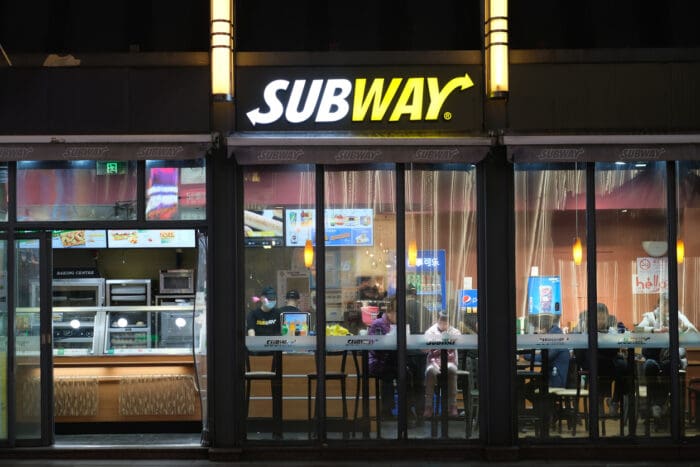Are you trying to get more local customers for your franchise? Nailing your franchise SEO strategy is the key to showing up when people in your area search for what you offer. This guide will explain how franchise SEO works, why it matters, and some tried-and-true tactics to help you stand out in local search results.
Key Takeaways
- Franchise SEO boosts your business's visibility online, helping you attract more local customers and grow your revenue.
- Keeping your branding consistent across locations and responding to customer reviews can build trust and improve your rankings.
- Simple steps like focusing on local keywords, updating your Google Business Profile, and using locally relevant content can dramatically improve your SEO.
Understanding Franchise SEO
So, what exactly is franchise SEO, and why should you care? Simply put, franchise SEO is about optimizing your franchise’s online presence so that each location appears prominently in local search results. Whether you own a chain of coffee shops, a group of auto repair centers, or a network of fitness studios, effective SEO ensures that when someone nearby searches for services you offer, your business is one of the first they see.

Franchise business owners must understand specific SEO strategies that differ from traditional methods. Without a strong SEO strategy, your franchise locations might get buried under competitors in search results. That could mean fewer website visits, fewer phone calls, and fewer customers walking through your doors. In today’s digital age, you're virtually invisible if you’re not visible online.
What Is Franchise SEO?
Franchise SEO involves a combination of traditional SEO practices and specialized local SEO tactics tailored to each franchise location. It focuses on:
- It is crucial to optimize individual location pages on your website with relevant local keywords and content. Franchise websites must also be optimized for technical SEO and local backlinks, and duplicate content must be avoided.
- Creating unique, localized content that resonates with your community.
- Managing online reviews and local listings to boost credibility and trustworthiness.
- Ensuring consistent business information (like name, address, and phone number) across all online platforms.
Think of it as giving each franchise location its spotlight online while maintaining its brand identity. It’s about striking the right balance between uniform branding and local personalization.
Benefits of Franchise SEO
Franchise SEO offers many benefits that can significantly enhance franchise businesses' online presence and profitability. By optimizing for search engines, franchises can ensure that each location stands out in search engine results pages (SERPs), attracting more local customers and driving more traffic to both their website and physical storefronts.
Key Benefits of Franchise SEO:
- Increased Online Visibility: By optimizing your website and online presence, your franchise can appear more prominently on search engine results pages. This increased visibility helps you reach a wider audience and attract more local customers actively searching for your services.
- Improved Brand Awareness: Effective franchise SEO helps establish a strong brand identity. Consistent and optimized content across all franchise locations builds trust and recognition among potential customers.
- Enhanced Local Search Engine Rankings: Targeting location-specific keywords and optimizing your Google Business Profile can significantly improve your local search engine rankings. This makes it easier for local customers to find your franchise locations.
- Increased Website Traffic: A well-executed franchise SEO strategy drives more traffic to your website. More visitors often translate to more leads, conversions, and increased sales.
- Cost-Effective Marketing: Compared to traditional advertising methods, franchise SEO is a cost-effective strategy that delivers long-term results. Once your website is optimized, it continues to attract traffic without the ongoing costs associated with paid advertising.
By leveraging these benefits, franchise businesses can enhance their online presence, attract more local customers, and drive significant growth in sales and revenue.
Why Franchise SEO Matters
Imagine a potential customer in your area searching for “best tacos near me,” but your taco franchise doesn’t appear in the results. That’s a lost opportunity, and chances are they’ll end up at a competitor’s establishment. Effective franchise SEO helps you capture these local searches, turning online visibility into foot traffic and sales.
Franchise SEO services include professional SEO strategies tailored to multiple locations, enhancing reputation and increasing sales.
Benefits of Franchise SEO:
- Increase local visibility: Appear in local search results and on Google Maps.
- Drive targeted traffic: Attract customers actively searching for your products or services.
- Enhance credibility: A top spot in search results signals trustworthiness to potential customers.
- Boost revenue: More visibility often translates to more customers and increased sales.

Real-World Example: Consider Subway, one of the largest franchise chains globally. Despite their massive brand recognition, each Subway location invests in local SEO to ensure they appear in local search results. They optimize for keywords like “sub sandwich shop in [city name]” to attract customers searching their specific area.
Key Challenges in Franchise SEO
Franchise SEO isn’t without its hurdles. Managing SEO for multiple locations adds layers of complexity that single-location businesses don’t face. Local franchise SEO is crucial in helping companies to reach nearby customers effectively. Let’s delve into some common challenges and how to tackle them effectively.
Duplicate Content Issues
One major pitfall is duplicate content. If each of your franchise location pages has the same generic content, search engines may have trouble distinguishing between them. This can lead to lower rankings or even penalties from search engines like Google.
Why It's a Problem:
- Search Engine Confusion: Search engines strive to provide users with diverse and relevant content. Duplicate content makes it difficult for them to decide which page is more applicable.
- Diluted SEO Value: Identical content across pages can dilute the SEO value, causing all pages to rank lower.
Solution:
- Customize Content for Each Location: Create unique content highlighting what makes each location special. This could include:
- Local Events: Promote events happening in your area.
- Staff Spotlights: Introduce team members who work at that specific location.
- Community Involvement: Showcase charity work or partnerships with local organizations.
- Use Location-Specific Keywords: Incorporate keywords that include the city or neighborhood name.
- Unique Meta Tags: Ensure each page has unique meta titles and descriptions.
Example: A national restaurant franchise like Olive Garden might have different promotions or menu highlights based on regional tastes. Tailoring content to each location improves local engagement and SEO performance.
Maintaining Brand Consistency
Balancing local customization with brand consistency is a delicate act. While each location should have its own flavor, you also need to maintain a cohesive brand image that customers recognize and trust.
Challenges:
- Inconsistent Messaging: Too much variation can confuse customers about what your brand represents.
- Quality Control: Ensuring that all locations uphold the brand's standards in their online content.
Solution:
- Develop Clear Brand Guidelines: Provide franchisees with a branding toolkit that includes:
- Logo Usage: Guidelines on how to use logos, including size, placement, and color schemes.
- Tone of Voice: Instructions on the language and tone used in communications.
- Visual Elements: Approved images, fonts, and design elements.
- Provide Content Templates: Offer website and social media templates that allow local input while maintaining brand standards.
- Regular Training and Communication: Hold webinars or workshops to educate franchisees about brand guidelines and the importance of consistency.
Example: Starbucks maintains a consistent brand image globally, yet individual stores can showcase local art or host community events. This balance strengthens the brand while fostering local connections.
Managing Online Reviews
Online reviews can make or break your local reputation. Managing reviews across multiple platforms and locations can be overwhelming for franchises, but it's essential.
Why It Matters:
- Influences Purchasing Decisions: Many consumers read online reviews before choosing a business.
- Impacts SEO Rankings: Search engines consider review signals in their ranking algorithms.
- Reflects Customer Satisfaction: Reviews provide insights into customer experiences at each location.
Solution:
- Use Reputation Management Tools: Platforms like ReviewTrackers or Birdeye can help you monitor and manage reviews across all locations.
- Set Up Alerts: Receive notifications for new reviews so you can respond promptly.
- Encourage Positive Reviews: Train staff to ask satisfied customers to leave reviews.
- Respond Professionally: Address negative reviews with empathy and a willingness to resolve issues.
Essential Strategies for Effective Local Franchise SEO
Now that we've identified the challenges let's explore strategies that can elevate your franchise SEO and help you outrank the competition.
Conduct Local Keyword Research
Understanding what keywords your local customers use is crucial for attracting the right audience. Generic keywords are highly competitive, so focusing on long-tail, location-specific keywords can give you an edge.
Local franchise SEO services are vital in enhancing brand visibility and generating leads by targeting these specific keywords.
Action Steps:
- Use Keyword Research Tools:
- Google Keyword Planner: Identify popular search terms in your area.
- Moz Keyword Explorer or SEMrush: Analyze keyword difficulty and search volume.
- Identify Local Intent Keywords:
- Include city names, neighborhoods, or phrases like “near me.”
- Example: “Gluten-free bakery in Brooklyn” or “24-hour gym near Downtown LA.”
- Analyze Competitor Keywords:
- See what keywords local competitors are ranking for.
- Use tools like Ahrefs to conduct competitor analysis.
- Incorporate Keywords Naturally:
- Use them in page titles, headers, meta descriptions, and content.
- Avoid keyword stuffing, which can harm your rankings.
- Optimize for Voice Search:
- With the rise of voice assistants, optimize for conversational queries.
- Example: “Where can I find the best sushi in San Francisco?”
You attract customers actively seeking your services in your area by targeting the right keywords.
Optimize Your Google Business Profile
Your Google Business Profile (formerly Google My Business) is a free and powerful tool that significantly impacts local SEO.
Action Steps:
- Claim and Verify Your Listings:
- Ensure each franchise location has its own verified listing.
- Follow Google's verification process, which may involve a postcard, phone call, or email.
- Provide Complete and Accurate Information:
- Business Name: Use the exact name as it appears in the real world.
- Address and Phone Number: Ensure they are accurate and consistent with your website.
- Hours of Operation: Update for holidays or special events.
- Website URL: Link to the specific location page, not the corporate homepage.
- Add High-Quality Photos:
- Include interior and exterior shots.
- Showcase products, services, and team members.
- Utilize Google Posts:
- Share updates, promotions, or events directly on your profile.
- Keep content fresh to engage users.
- Manage and Respond to Reviews:
- Thank customers for positive feedback.
- Address negative reviews professionally.
- Enable Messaging:
- Allow customers to message you directly from your profile for quick inquiries.
By optimizing your Google Business Profile, you enhance your visibility in Google Maps and local search results, making it easier for customers to find and choose your business.
Create Localized Content for Local Customers
Content is king, but localized content is the ace up your sleeve. It helps you connect with your community and improves your relevance in local searches.
Action Steps:
- Develop Location-Specific Pages:
- Create a dedicated page for each franchise location.
- Include unique content that highlights what sets that location apart.
- Write Localized Blog Posts:
- Cover topics relevant to your area.
- Examples:
- "Top 10 Family Activities in [City]"
- "How [Your Business] Supports Local Schools in [Neighborhood]"
- Feature Customer Testimonials:
- Showcase reviews or success stories from local customers.
- Include photos or videos if possible.
- Highlight Community Involvement:
- Share your participation in local events, charities, or sponsorships.
- This not only improves SEO but also builds goodwill.
- Use Local Language and Dialect:
- Incorporate regional phrases or terms that resonate with locals.
- Be mindful of cultural sensitivities.
- Include Local Schema Markup:
- Use structured data to provide search engines with detailed information about your business.
Example: A pet supply franchise in Austin might blog about "Keeping Your Pet Cool During Texas Summers," providing valuable tips while incorporating local relevance.
Build Local Backlinks
Backlinks from reputable local websites signal to search engines that your business is trusted in the community. They are a critical component of SEO success.
Action Steps:
- Partner with Local Organizations:
- Collaborate with charities, schools, or clubs.
- Request backlinks in exchange for sponsorships or contributions.
- Engage with Local Media:
- Submit press releases about significant events or milestones.
- Offer to be a source for expert commentary in your industry.
- Guest Blogging:
- Write articles for local blogs or business directories.
- Provide valuable content in exchange for a backlink.
- Participate in Local Events:
- Attend or sponsor events like fairs, festivals, or trade shows.
- Get listed on event websites with a link back to your site.
- List in Local Directories:
- Ensure your business is listed in local chambers of commerce or industry-specific directories.
- Verify the accuracy of your information.
- Encourage Customer and Partner Links:
- Ask satisfied customers or business partners to link to your site.
Quality backlinks enhance your domain authority, leading to better rankings and increased local visibility.
Ensure Consistent NAP Information
NAP stands for Name, Address, and Phone number. Consistency across all online platforms is crucial for local SEO.
Why It Matters:
- Search Engine Trust: Consistent information helps search engines verify your business's legitimacy.
- User Experience: Inconsistent info can confuse customers, leading to lost business.
Action Steps:
- Audit Existing Listings:
- Use tools like Moz Local or Yext to find all instances of your business online.
- Identify inaccuracies or outdated information.
- Standardize Your Information:
- Decide on a standard format for your business name, address, and phone number.
- Example: "123 Main Street" vs. "123 Main St."—choose one and stick with it.
- Update Listings:
- Correct inconsistencies on major platforms like Google, Yelp, Bing, and social media.
- Don't forget smaller directories relevant to your industry.
- Monitor Regularly:
- Schedule periodic checks to ensure information remains consistent.
- Automate the process using listing management tools if possible.
- Train Franchisees:
- Educate your team on the importance of NAP consistency.
- Provide guidelines for any new listings or changes.
Maintaining consistent NAP information improves your chances of ranking higher in local searches and makes it easier for customers to reach you.
Technical Aspects to Consider for Franchise Websites
While content and local engagement are vital, don’t overlook the technical side of SEO. Technical optimizations ensure that search engines can crawl and index your site effectively.
Search engine optimization is crucial for ranking higher in search engine results, specifically for attracting local customers and improving the visibility of multiple franchise locations.
Improve Website Performance
A slow website can deter visitors and lower your search rankings. In an era where users expect instant results, performance is vital.
Action Steps:
- Optimize Images and Videos:
- Compress images without sacrificing quality.
- Use appropriate file formats (e.g., JPEG for photos, PNG for graphics).
- Enable Browser Caching:
- Store resource files locally on users' browsers for faster load times on subsequent visits.
- Minimize HTTP Requests:
- Reduce the number of elements on your pages.
- Combine CSS and JavaScript files where possible.
- Use a Content Delivery Network (CDN):
- Distribute your site's content across multiple servers globally.
- Improves load times for users located far from your primary server.
- Implement Accelerated Mobile Pages (AMP):
- AMP provides a stripped-down version of your site optimized for mobile devices.
- Conduct Regular Performance Tests:
- Use tools like Google PageSpeed Insights or GTmetrix to identify issues.
Enhancing your site's speed and performance improves user experience and increases the likelihood of higher search rankings.
Use Schema Markup
Schema markup is code that helps search engines understand your content better, leading to rich snippets in search results.
Benefits:
- Enhanced Search Listings: Display additional information like ratings, hours, or events.
- Improved Click-Through Rates: Rich snippets are more eye-catching, attracting more clicks.
Action Steps:
- Implement Local Business Schema:
- Include address, phone number, business type, and opening hours.
- Use Review Schema:
- Showcase star ratings and customer reviews directly in search results.
- Add Event Schema (if applicable):
- Highlight upcoming events or promotions.
- Utilize How-To and FAQ Schemas:
- Provide structured instructions or answers to common questions.
- Test Your Markup:
- Use Google's Rich Results Test to ensure your schema is implemented correctly.
- Stay Updated:
- Schema guidelines evolve, so keep abreast of changes to maintain compliance.
If you're uncomfortable with coding, consider hiring a developer or using plugins that assist with schema markup.
Regularly Conduct SEO Audits
An SEO audit helps identify issues that could hurt your rankings and uncovers opportunities for improvement.
Action Steps:
- Check for Broken Links:
- Use tools like Screaming Frog to find and fix broken internal and external links.
- Identify Duplicate Content:
- Ensure all content is unique to avoid penalties.
- Analyze Site Structure:
- Confirm that your site is easy for users and search engines to navigate.
- Use a logical hierarchy with clear categories and subcategories.
- Review Meta Tags:
- Optimize title tags and meta descriptions for relevance and keyword inclusion.
- Assess Mobile Friendliness:
- Use Google's Mobile-Friendly Test tool.
- Ensure responsive design across devices.
- Evaluate Backlink Profile:
- Use Ahrefs or SEMrush to analyze backlinks.
- Disavow toxic or spammy links that could harm your site.
- Monitor Site Speed:
- Test load times regularly and address any slowdowns.
- Set Up Analytics and Tracking:
- Use Google Analytics and Google Search Console to monitor performance.
Regular audits enable you to avoid potential issues and keep your SEO strategy effective.
Leverage Online Reviews
We touched on reviews earlier, but they deserve extra emphasis due to their significant impact on local SEO and customer perception.
Why Reviews Matter:
- Influence on Purchasing Decisions: Most consumers read reviews before choosing a business.
- SEO Signals: Search engines consider reviewing quantity and quality in their algorithms.
- Trust Building: Positive reviews build credibility and trust with potential customers.
Action Steps:
- Make It Easy to Leave Reviews:
- Provide direct links to your review profiles in follow-up emails or on receipts.
- Place the "Leave a Review" buttons on your website.
- Ask at the Right Time:
- Request reviews when customers are most satisfied, such as after a successful purchase or positive interaction.
- Respond to Reviews Promptly:
- Positive Reviews: Thank the customer and express appreciation.
- Negative Reviews: Apologize for their experience and offer to resolve the issue offline.
- Share Reviews on Your Platforms:
- Highlight positive feedback on your website and social media.
- This not only promotes your business but also encourages others to leave reviews.
- Monitor Review Platforms:
- Regularly check sites like Google, Yelp, TripAdvisor, and industry-specific platforms.
- Train Staff:
- Ensure employees understand the importance of reviews and know how to encourage customers appropriately.
By actively managing online reviews, you enhance your reputation, build trust, and improve your local SEO performance.
Reputation Marketing and Franchise SEO
Reputation marketing is a critical component of a successful franchise SEO strategy. It involves managing and promoting your franchise’s online reputation to build trust and credibility with potential customers. Franchises can significantly enhance their local SEO efforts by effectively handling online reviews, responding to customer feedback, and showcasing positive testimonials.
Critical Strategies for Reputation Marketing:
- Encourage Online Reviews: Positive reviews can boost your franchise’s local search engine rankings and attract more customers. Encourage satisfied customers to leave reviews on platforms like Google, Yelp, and social media.
- Respond to Customer Feedback: Promptly addressing customer feedback, both positive and negative, shows that you value their opinions. This responsiveness builds trust and can turn a negative experience into a positive one.
- Showcase Customer Testimonials: Featuring testimonials on your website and social media channels can build credibility. Real-life success stories and positive experiences resonate with potential customers and enhance your brand’s reputation.
- Manage Online Reviews: Regularly monitor and manage online reviews to prevent negative feedback from damaging your reputation. Use reputation management tools to keep track of reviews across multiple platforms and respond appropriately.
By integrating reputation marketing into your franchise SEO strategy, you can build a positive online reputation, attract more local customers, and improve your search engine rankings.
Common Mistakes to Avoid
Even with the best intentions, it's easy to make mistakes that can undermine your SEO efforts. Being aware of these pitfalls can save you time and resources.

Ignoring Mobile Optimization
With most local searches happening on mobile devices, a non-mobile-friendly site is a significant drawback.
Why It's a Problem:
- Poor User Experience: Difficult navigation can frustrate users, leading to higher bounce rates.
- Lower Search Rankings: Google uses mobile-first indexing, prioritizing mobile-friendly sites.
Fix:
- Responsive Design: Ensure your website adapts to various screen sizes.
- Simplify Navigation: Make menus and buttons easy to use on small screens.
- Optimize Load Times: Mobile users are often on slower connections; optimize for speed.
Overlooking Local Keyword Research
Assuming you know what customers are searching for can lead you astray and result in missed opportunities.
Why It's a Problem:
- Misaligned Content: You may optimize for terms your audience isn't using.
- Lost Traffic: Competitors may capture the traffic you're missing.
Fix:
- Regularly Update Keyword Research:
- Use tools to track changes in search trends.
- Adjust your content strategy accordingly.
- Engage with Customers:
- Ask customers how they found you.
- Incorporate their language and search habits into your strategy.
Neglecting Online Reviews
Ignoring reviews can harm your reputation and cause you to miss opportunities for improvement and customer engagement.
Why It's a Problem:
- Unaddressed Negative Feedback: Leaves a poor impression on potential customers.
- Missed SEO Benefits: Positive reviews can boost your rankings.
Fix:
- Implement a Review Management Strategy:
- Set up alerts for new reviews.
- Allocate time to respond to reviews regularly.
Inconsistent NAP Information
As previously discussed, inconsistencies in your business information can confuse customers and search engines.
Fix:
- Conduct Regular Audits:
- Ensure all listings are up-to-date.
- Correct discrepancies promptly.
Managing Your Franchise SEO Campaigns
Decide whether you'll manage SEO in-house, outsource it, or use a hybrid approach. Each method has its pros and cons.
Centralized vs. Decentralized SEO Management
Centralized Management:
- Pros:
- Brand Consistency: Ensures uniform messaging and branding across all locations.
- Economies of Scale: Cost savings by consolidating efforts.
- Expertise: The central team may have more SEO knowledge.
- Cons:
- Lack of Local Nuance: May miss local opportunities or fail to address specific market needs.
- Franchisee Disengagement: Franchisees might feel disconnected from marketing efforts.
Decentralized Management:
- Pros:
- Local Customization: Tailored strategies for each market.
- Franchisee Engagement: Owners take ownership of their marketing.
- Cons:
- Inconsistent Branding: Risk of divergent messaging.
- Variable Quality: SEO effectiveness may vary based on franchisee expertise.
Hybrid Approach:
- Combines centralized guidelines with local input.
- Provides a balance between consistency and localization.
Consider what works best for your franchise structure and resources.
Using SEO Tools for Management
Utilize SEO tools to track performance, identify issues, and make data-driven decisions.
Recommended Tools:
- Google Analytics and Google Search Console:
- Monitor website traffic, user behavior, and search performance.
- Identify top-performing pages and areas for improvement.
- SEO Platforms (e.g., SEMrush, Ahrefs, Moz):
- Conduct keyword research and track rankings.
- Analyze backlinks and competitor strategies.
- Reputation Management Tools:
- ReviewTrackers, Birdeye: Monitor and respond to reviews across platforms.
- Social Listening Tools: Keep tabs on brand mentions and customer sentiment.
- Local SEO Tools:
- BrightLocal, Whitespark: Manage local citations and track local rankings.
- Yext: Update business information across multiple directories simultaneously.
- Project Management Software:
- Coordinate tasks and communication between central and local teams.
- Tools like Trello or Asana can keep everyone on the same page.
By leveraging these tools, you can streamline your SEO efforts and maximize your results.
Measuring Franchise SEO Success
Measuring the success of your franchise SEO strategy is crucial for understanding its effectiveness and making informed decisions. By tracking key metrics, you can evaluate the impact of your efforts and adjust your strategy to optimize results.
Key Metrics to Track:
- Website Traffic: Monitor the number of visitors to your franchise website. Increased traffic indicates that your SEO efforts drive more potential customers to your site.
- Search Engine Rankings: Track your rankings in search engine results pages (SERPs) for targeted keywords. Higher rankings mean better visibility and more chances of attracting local customers.
- Local Search Engine Rankings: Focus on your performance in local search results. Improved local rankings indicate that your franchise locations are more visible to nearby customers.
- Conversion Rates: Measure the percentage of website visitors who take a desired action, such as purchasing or filling out a contact form. Higher conversion rates suggest that your SEO strategy effectively attracts and engages potential customers.
- Return on Investment (ROI): Calculate the ROI of your franchise SEO campaign by comparing the cost of your SEO efforts to the revenue generated. A positive ROI indicates that your strategy is cost-effective and contributing to your business growth.
By regularly tracking these metrics, you can gain valuable insights into the performance of your franchise SEO strategy. This data-driven approach allows you to make informed decisions, optimize your online presence, and attract more local customers, ultimately driving more sales and revenue for your franchise business.
Conclusion
Franchise SEO is a powerful tool for increasing local visibility and attracting customers. By understanding the challenges and implementing these strategies, you'll be well on your way to dominating local search results.
Remember:
- Stay Committed: SEO is an ongoing process that requires regular attention.
- Engage Locally: Connect with your community through localized content and partnerships.
- Monitor and Adapt: Use analytics to track performance and adjust strategies.
- Foster Collaboration: Work with franchisees to ensure alignment and maximize impact.
Investing in a comprehensive franchise SEO strategy can improve search rankings, build stronger connections with customers, and set your franchise up for long-term success.
Frequently Asked Questions

How long does it take to see results from franchise SEO efforts?
SEO is a long-term strategy. While you might notice some improvements within a few weeks, significant results often take several months. Patience and consistent effort are key.
Can I use the same content for all my franchise locations?
It's not recommended. Unique, localized content for each location performs better in search rankings and resonates more with local customers. Duplicate content can harm your SEO efforts.
How important are online reviews for my franchise?
Reviews are critical. They influence customer decisions and impact your search rankings. Actively managing and responding to reviews enhances your online reputation and builds trust.
Should I hire an SEO agency or do it myself?
It depends on your resources and expertise. Managing SEO effectively requires time and specialized knowledge. An SEO agency can provide expertise and allow you to focus on running your business.
What are some easy wins for improving local SEO?
Claim and optimize your Google Business Profile, ensure consistent NAP information, gather and respond to online reviews, and create localized content. These steps can significantly boost your local visibility.
How long does it take to see results from franchise SEO?
SEO is a long-term strategy, and while some improvements may be noticeable within a few months, it typically takes 6-12 months to see significant results. Factors like competition, your website's current state, and your SEO strategy's strength play a role. The key is consistent effort and ongoing optimization to build sustainable growth.
What are the most important local SEO factors for franchises?
The top local SEO factors for franchises include optimizing your Google Business Profile, ensuring consistent NAP (Name, Address, Phone) information across directories, gathering positive online reviews, creating localized content, and building backlinks from reputable local websites. Each of these factors helps improve your local search rankings and visibility in your community.
Can a franchise SEO strategy be customized for multiple locations?
A tailored franchise SEO strategy can be customized for each location to ensure every branch reaches its local target audience. This includes optimizing each location’s Google Business Profile, creating unique location pages with relevant keywords, and managing local reviews. The goal is to give each location a competitive edge in its specific market while maintaining brand consistency.

Ready to Boost Your Franchise SEO?
Take the next step in dominating your local market with a franchise SEO strategy that drives real results. Whether you want to attract more customers or outshine your competition, we're here to guide you to success.
🚀 Get a Free Consultation
Speak with one of our SEO experts and discover how to elevate your local presence.
📞 Call Us: (608) 410-4450
📧 Email Us: mark.hope@asymmetric.pro
📆 Schedule a Meeting: Book Now
Want to learn more?
📖 Read More Articles: Here
About the author
Mark A. Hope is the co-founder and Partner at Asymmetric Marketing, an innovative agency dedicated to creating high-performance sales and marketing systems, campaigns, processes, and strategies tailored for small businesses. With extensive experience spanning various industries, Asymmetric Marketing excels in delivering customized solutions that drive growth and success. If you’re looking to implement the strategies discussed in this article or need expert guidance on enhancing your marketing efforts, Mark is here to help. Contact him at 608-410-4450 or via email at mark.hope@asymmetric.pro.

